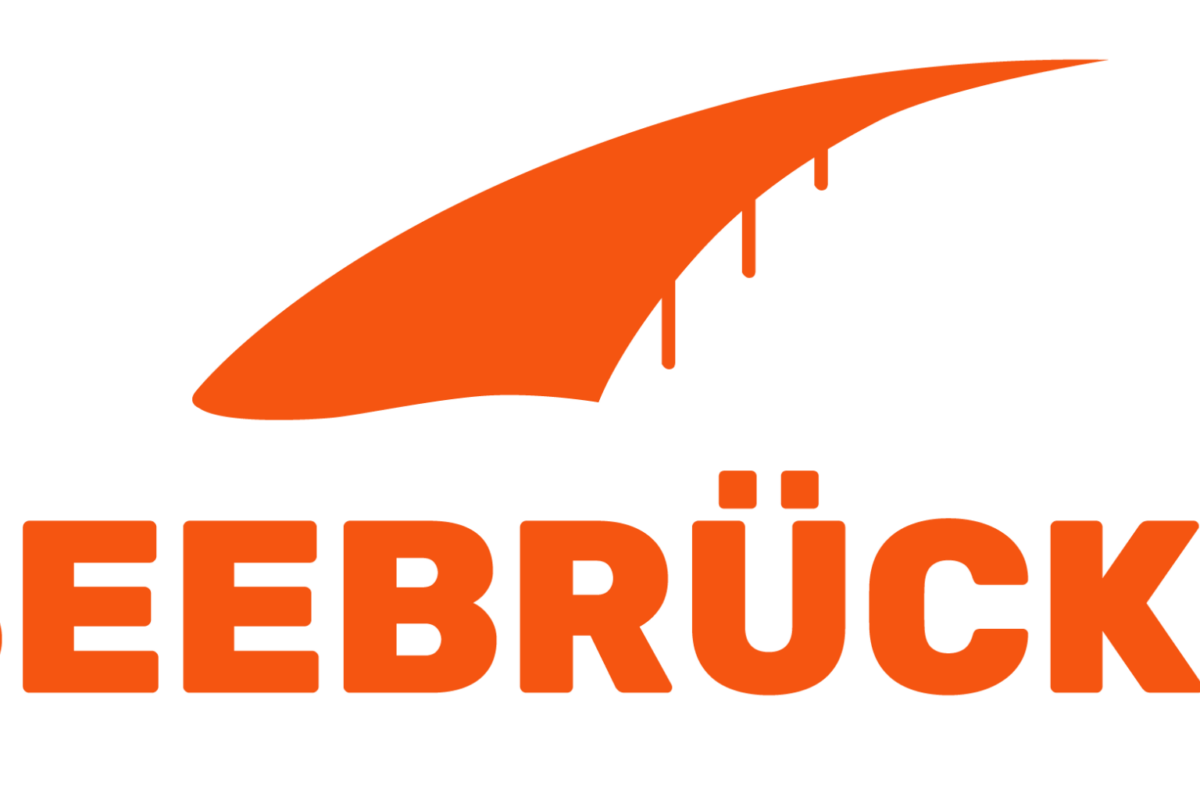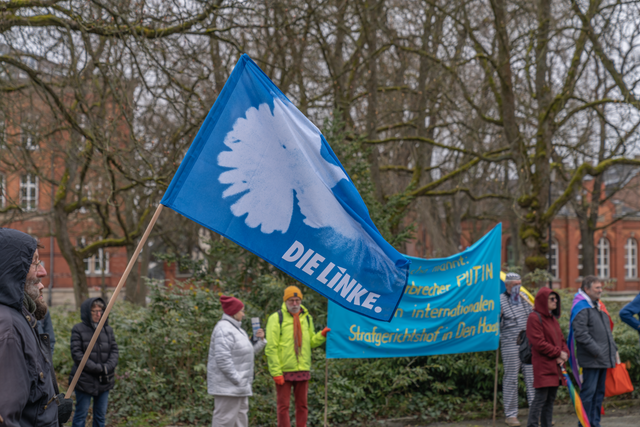For some time now, unrest has stirred within left-wing political party die LINKE. In addition to discussion of a possible split, the party has seen a string of conflicts over core themes. Of particular note is the dispute over peace policy. The virulent concerns are also addressed at party-internal regional conferences.
At the south Germany regional conference Claudia Haydt, board member of the IMI who is also active within die LINKE, proposed principles which die LINKE must adhere to in order to continue operating as a credible party for peace. She did so in a 10-item list. The drafted list does not intend to summarise a comprehensive policy, but rather serves as a catalogue of tasks that will help meet the present pacifist-political demands.
Over the past months, many of those actively engaged with die LINKE have been repeatedly confronted with the question: what does this party stand for? Such questioning makes ascertaining the hurdles facing a left-wing political party all the more important in securing the party’s future. As such, consistently relating the fight against poverty to the fight for human rights is essential, just as action against climate change is only effective when combined with comprehensive social policy.
We fight for the rights of individuals (as with the Selbstbestimmungsgesetz [1]) and for a strong community in which wealth is redistributed from the top downwards. Equally so, the interests of the people must be foregrounded in leftist peace policy. Solidarity with the victims of war, violence, and those in need motivates our stances on international issues. Nonetheless, falling into the trap of imperialist violence in the name of leftist values is not a solution.
Die LINKE’s programmatic framework decisions, met at the party convention, as well as the stances of the party executives bear a pacifist imprint. Unfortunately, public statements by prominent party members repeatedly and fundamentally contradict this message. Therefore, it is necessary to answer with clear peace policy messaging and action.
In the following, I will list ten items with which we can and must position ourselves against the present socially hegemonic militarisation discourse. The following will also largely disregard issues concerning the geopolitical parameters of current events and the nature of armed conflict—not because these concerns are irrelevant, but because there has yet to be a consensus reached within the party on how to approach them. Here I prefer to concentrate on areas which correspond to the predetermined party programme and the shared political actions and positioning, which are possible and necessary today:
1. Die LINKE is a party of international order: we uniformly criticise violations of international law, regardless of whether responsibility lies with Russia, NATO, Turkey, Germany, or Saudi Arabia. We do not ignore human death and suffering, regardless of where the affected live or the colour of their skin.
2. We do not defend warring factions. Wars of aggression remain wars of aggression, though the aggressors may refer to history in justifying their actions. Nonetheless, an understanding of the interests with which war is pursued is worthwhile. Striving to understand conflict dynamics does not make anyone an ally to the aggressor. We should not accuse each other of this—insofar as no attempt to justify violence is being made. The search for peaceful and sustainable solutions is not realistically possible without the full picture of a conflict in mind.
3. Military alliances are not collective security systems. Security systems include potential foes. That is demonstrably not the case with NATO. NATO was founded as a military bloc and remains as such today. Thus, NATO cannot be a partner for peace. Simply because Putin’s invasion is clearly bad, NATO is not suddenly good. Our leftist goal of a collective security system which includes Russia is difficult to negotiate at this time. Nonetheless, it is right that we not give up hope for long-term, peaceful order in all of Europe.
4. Every weapon finds its war. Armament kills even long after wars end. To say that weapons remain in their intended destinations and meet their intended targets is to turn a blind eye to reality. Not only do they make their way from one war zone to the next, but they also pose domestic problems. That is how, to this day and in this very country, organised crime is outfitted with weapons from the Yugoslav wars. For these reasons, we must not allow doubt to arise in the fact that armament is and remains problematic—arms production and export alike—no matter where it takes place. Let us halt the mass expansion of the weapons industry and further pursue the goal of economic conversion.
5. In addendum to the above: those who build tanks, warplanes and warships do so with steel and other valuable resources. Steel is forged in furnaces. Furnaces use unthinkable amounts of energy and release corresponding amounts of CO2 into the atmosphere. Conduction of but also preparation for wars destroy human and natural means of existence. Additionally, investing in the arms industry creates a deficit of billions which are desperately needed for socio-ecological reconstruction. We can either fight the climate catastrophe or arm ourselves. In other words: those who invest a minimum of 2% of the GDP in armament have given up on the goal of keeping global temperature increase below 1.5 degrees celsius.
6. The global security turning point pursued by Scholz and his Ampel-coalition [2] drives us into an era of mass cuts of social services. Excluding military spending, we are already witnessing budget cuts in all areas. Instead of improvement, care-related professions have seen federal grants slashed; rather than being salvaged, hospitals are being closed, and there is not enough money to fund a basic child allowance for families. The Ampel-coalition passes one armament project after another. Orders for tanks, attack helicopters, and warships are often paid over a period of ten to fifteen years. The exceptional 100-billion-euro credit financing these payments will expire in 2026. Thereon, in accordance with NATO’s 2% spending goal, a remaining 20 billion euros must be drawn from the general budget—a sum nonetheless insufficient to cover the costs of the armament schedule. We must stop this armament madness and the consequential social clear-cutting as soon as possible.
7. It is no accident that debate surrounding mandatory civil service has increasingly swept the political landscape as of late. This obligation, imposed on young people, is intended to fill personnel gaps in the military and social system, and it would be applicable to all genders. However, this is a step backwards rather than a sign of progress. Within the framework of mandatory civil service, young people are registered, sorted, and—according to evaluation metrics—groomed to become either cannon fodder or cheap labour in haemorrhaging health and social sectors. As such, let us take a clear stance against mandatory civil service and in favour of a more robust public sector. Moreover, the freedom to evade military service may also be an important international step toward peace. That young men who have escaped drafting in Russia cannot rely on finding refuge here is unacceptable.
8. An increasingly powerful arms industry has increasingly strong political influence. The arms industry is among the economic sectors at highest risk for corruption. After all is said and done, this matter concerns billions in public funds and comparable amounts in private profits. The arms industry poses a danger to democracy. The influence of arms industry lobbying in politics is already far too great. The more money that flows into armament, the greater the danger becomes—with Germany being no exception. The Federal Bureau of Defence Technology and Procurement has, to date, broken its own anti-corruption rules in 450 cases. Increases in defence programming and with rules being relaxed last year via the Procurement Acceleration Act will see a dramatic increase in the political power of the arms industry if we do not stand in clear opposition to it—another benefit to the credit of DIE LINKE in Mecklenburg-Western Pomerania successfully speaking out against Rheinmetall’s settlement in the region.
9. There are alternatives to global escalation, to the spiral of armament, and to military confrontation. As long as we are unable to overcome global exploitation through fair international cooperation, the path to world peace will prove extremely difficult. As we know, capitalism carries in it war as a cloud carries rain. However, steps toward deescalation are possible today. This includes the aforementioned strengthening of regional structures for security and cooperation. It also includes new generations of global disarmament agreements, the Treaty on the Prohibition of Nuclear Weapons, and regulations halting the use of killer drones and lethal autonomous weapons. Furthermore, foreign cultural policies and all measures which build bridges, person to person: financing for peace service, but also for international student exchange, sufficient funding for humanitarian help, and financing for international development to at least meet the UN Sustainable Development Goals (SDGs). Sadly, the necessary financial resources to meet these goals are missing—we will not settle for this.
10. As mentioned previously, DIE LINKE must not allow doubt to spawn around the fact that it is a, or rather the, party for peace. Unfortunately, another party has, for the moment, been relatively successful in selling itself as such in the Bundestag. In doing so, the so-called ‘Alternative for Germany’ (AfD) is committing phenomenal label fraud. Although the AfD’s policy against Russia is less confrontational than the governing Ampel-coalition (perhaps additionally due to their admiration for Putin’s reactionist social politics), it is, through and through, a military party that places crucial emphasis on a strong German military with its reactionary political goals. The AfD’s parliamentary representatives have ranked among them several military and armament lobbyists, and the party acts as an antagonist in debates concerning military armament. AfD using the idea of peace as a justification for their policies is a perversion, and the same goes for when other nationalist, reactionary powers use this logic.
True peace policy is international and based on solidarity. On the spectrum of political parties in the Bundestag, only DIE LINKE stands for these values. This we must prove — self-assuredly and clearly — through our stances, actions, and alliances.
Footnotes
1 Proposed policy to ease the process for transgender, non-binary, intersex, and other gender diverse individuals in seeking name and gender marker changes.
2 From ‘streetlight’, Ampelregierung is the name given to the governing coalition of the SPD, FDP and Green party (red, yellow, and green, respectively) as shorthand.
This article first appeared in German on the website of the Informationsstelle Militarisierung. Translation: Shav McKay. Reproduced with permission


